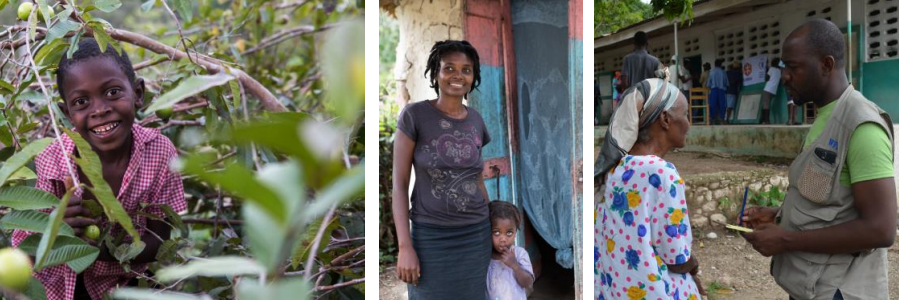The government of Haiti, with support from WFP and partners, is setting up safety nets for the most vulnerable households in the country and for pregnant and lactating women. WFP’s support includes government capacity strengthening on the targeting and management of the safety nets.
Background
As the only low-income country in the Americas, the Republic of Haiti continues to face significant humanitarian, political and development challenges, with three-fifths of Haitians living below the national poverty line.
These problems are exacerbated by frequent natural disasters, as Haiti is one of the countries worst affected globally by extreme weather events. The country’s capacity to respond to these crises through national systems has historically been low, since the country’s social protection systems were fragile, fragmented, underfunded and limited in coverage.
Interventions
With funding from USAID and in partnership with CARE, World Vision and Action Against Hunger, WFP has been working with the Ministry of Social Affairs and Labor (MAST) to develop Haiti’s social protection system, through the four-year programme Kore Lavi.
The programme started in September 2013, with the objective of strengthening government capacity to identify and support vulnerable people through a national social safety net. A food voucher safety net is being established as part of the programme, alongside targeted health and nutrition support. Kore Lavi programmes will be transitioned to full Government ownership by October 2019.
Original source and full report: WFP.
Posted on 2 November 2017

